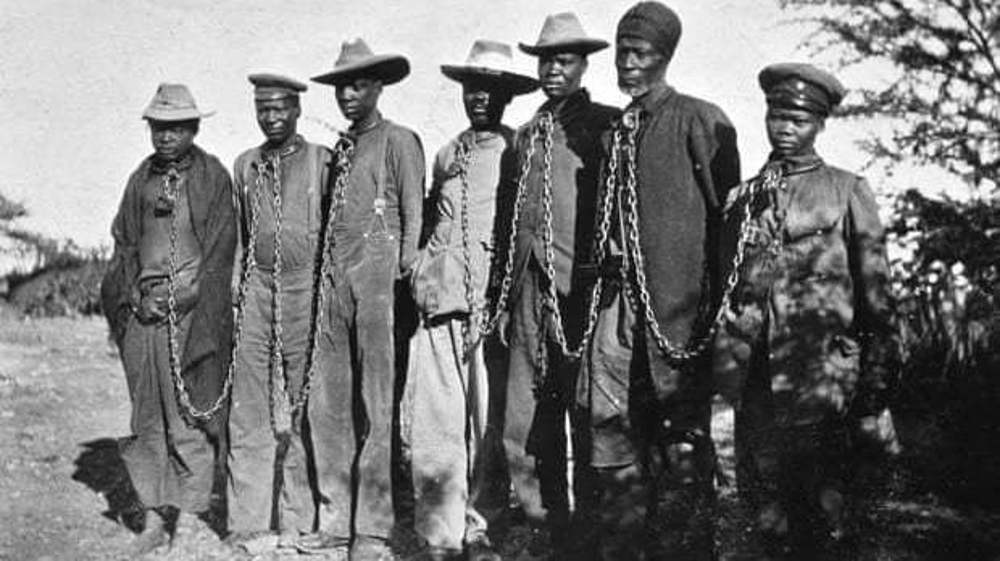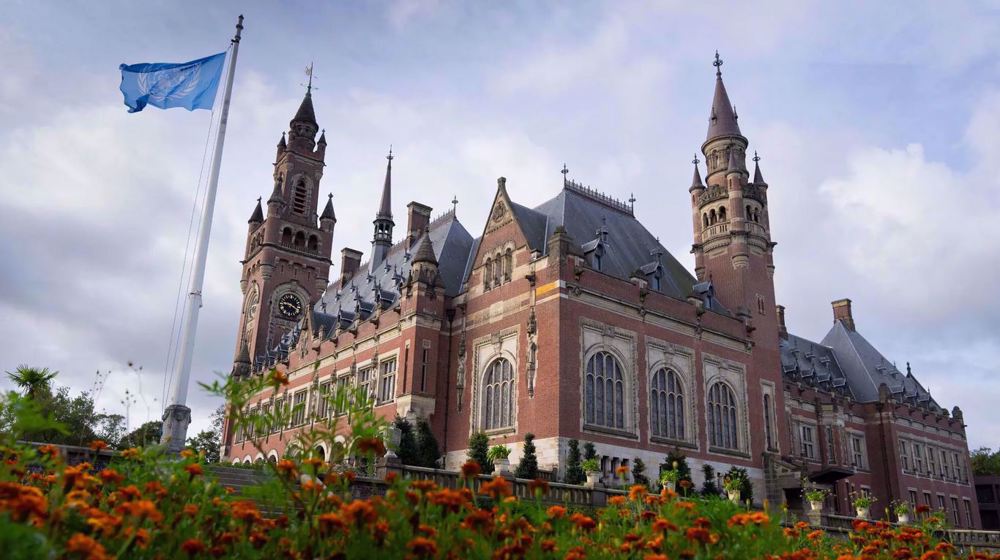Without apology, Germany admits 'genocide' in Namibia
Germany has formally recognized crimes committed by its colonial troops at the beginning of the 20th century against Namibian people as genocide.
Foreign Minister Heiko Maas said in a statement Friday that as a "gesture of recognition of the immeasurable suffering", Germany would fund projects worth 1.1 billion euros over 30 years in Namibia.
The aim is to compensate the southern African nation for the role Germany played in committing genocide and property seizures in its-then colony more than a century ago, he said.
Maas said the alleged reconciliation came after more than half a decade of efforts. It includes naming the events of the German colonial period in particular the atrocities in the period from 1904 to 1908 "without sparing or glossing over."
"We will now, also in an official capacity, call these events what they were from today's perspective — a genocide," Maas said even though he did not offer an apology.
Namibian President Hage Geingob's spokesman Alfredo Hengari welcomed the move.
"The acceptance on the part of Germany that a genocide was committed is the first step in the right direction," he said.
Thousands of Herero and Nama tribes were massacred by German colonial forces between 1904 and 1908, after the local population waged an uprising against German rule in the colony, then named German South West Africa.
Survivors were then forced into the desert, where many ended up in brutal concentration camps and used as slave labor while many perished from cold, malnutrition and exhaustion.
Herero paramount Chief Vekuii Rukoro blasted the proclaimed “agreement” as a "sellout," insisting, "We have a problem with that kind of an agreement, which we feel constitutes a complete sellout on the part of the Namibian government."
Rukoro, who unsuccessfully sued Germany for compensation in the United States, said the purported settlement was not enough for the two Namibian communities which had suffered "irreversible harm" at the hands of the German colonial forces.
An estimated 65,000 of the 80,000 Herero living in German South West Africa, and 10,000 of an estimated 20,000 Namas reportedly perished during the period.
Germany ruled Namibia from 1884 until it lost the colony during World War I. In 1920, the territory was placed under the South African administration until 1990 when it gained independence from the Apartheid regime.
Berlin last week categorically ruled out financial reparations forming part of a planned formal apology to Namibia for Germany’s colonial atrocities amid fears such payments could set a legal precedent for further claims.
Angela Merkel’s government has since 2014 negotiated with Namibia to “heal the wounds” of what historians call the first genocide of the 20th century.
Berlin in 2018 returned skulls and other remains of massacred tribes people that were used in the colonial-era experiments to proclaim racial superiority of Europeans.
The German government has previously admitted "moral responsibility" for the brutal carnage of the Namibian people, but has avoided an official apology in efforts to evade compensation demands.
Germany's decision came after French President Emmanuel Macron also refused to apologize over his country’s clear role in the 1994 Rwandan genocide of 800,000 people during a speech he delivered on Thursday in Kigali.
Rwanda published a report earlier this year showing that the former colonial power was aware that a genocide in 1994 was in the making.
According to the report, France bore responsibility for enabling the genocide by continuing firm support for Rwanda's then-president Juvenal Habyarimana.
“French officials armed, advised, trained, equipped, and protected the Rwandan government,” the report concluded, adding that the European country covered up its role for years.
The massacres began after Habyarimana's plane was shot down, killing him on April 6, 1994.
A report by a French inquiry panel in March revealed that a colonial attitude had blinded French officials. It said the French government bore a “serious and overwhelming” responsibility for not preventing the slaughter.
Hezbollah attacks Israeli forces after Lebanese homes blown up
World leaders, states hail ICC arrest warrants for Netanyahu, Gallant
MP: US accountable for possible Israeli 'foolishness' to attack Iraq
VIDEO | Israeli policies strangle Palestinian agriculture, economy
Iran's president offers condolences to Pakistan over terrorist attack
Canada’s Yukon town council at standstill over refusing oath to King Charles
Yemen's Houthi calls for jihad to protect Palestine against Israel
VIDEO | Internal rifts within Israel











 This makes it easy to access the Press TV website
This makes it easy to access the Press TV website